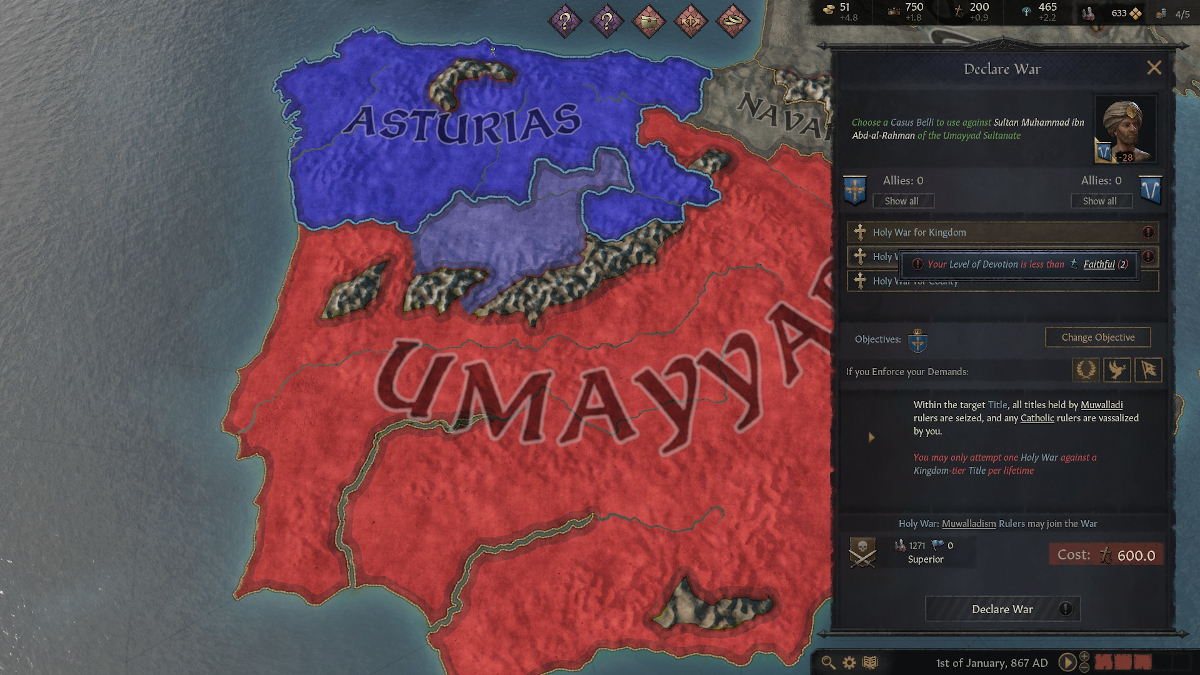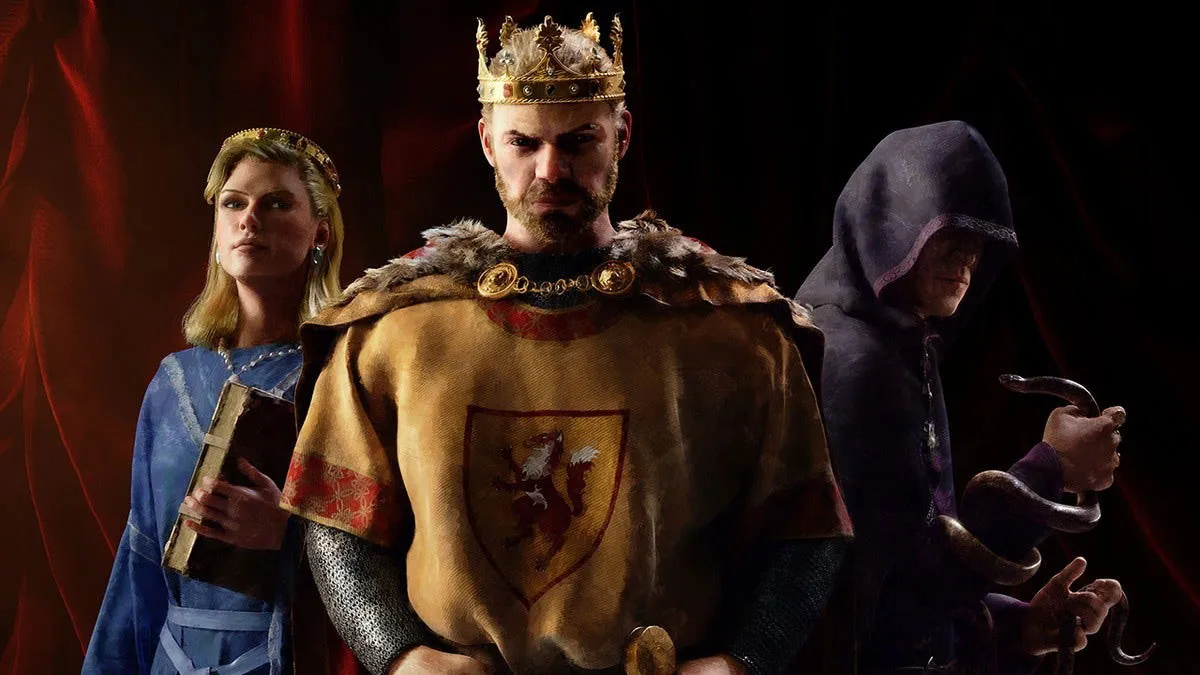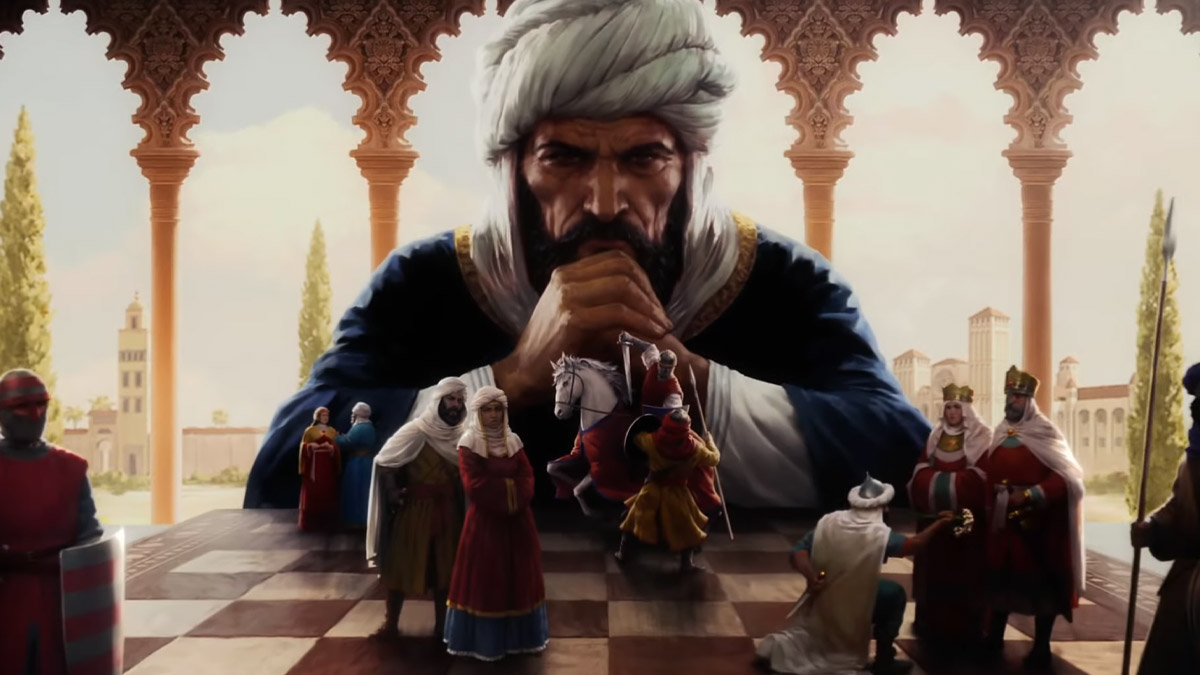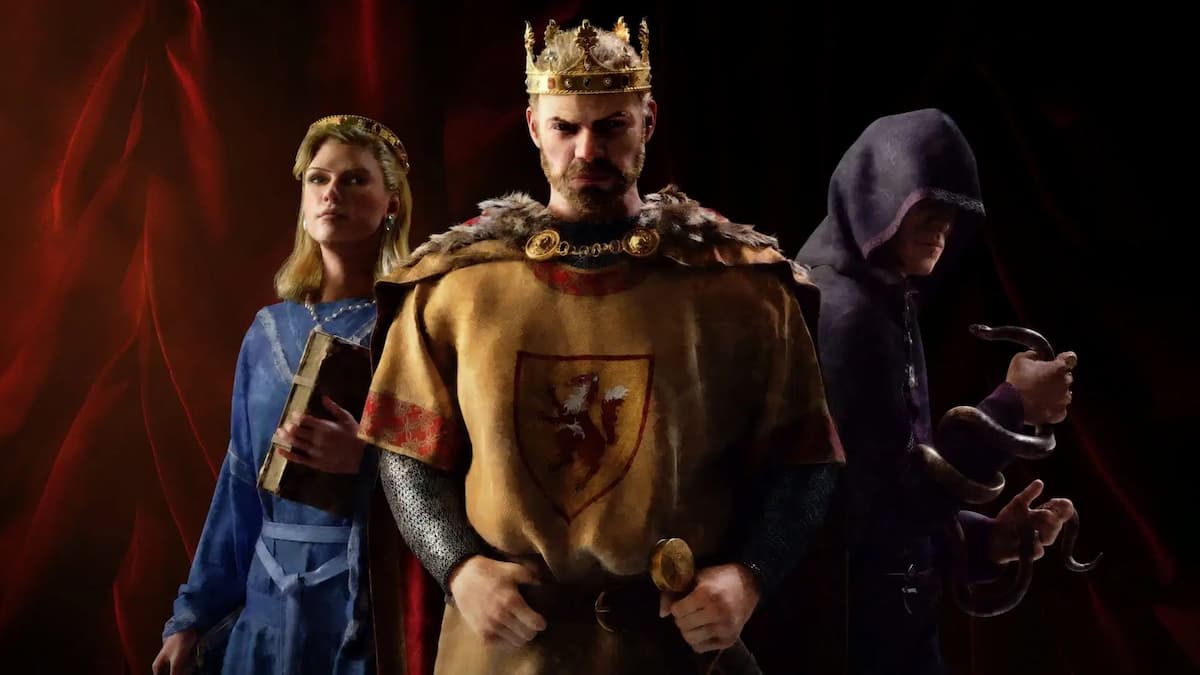Crusader Kings 3 has introduced different levels of piety, prestige, and renown for your character to progress through. These different levels are important, depending on what a character wants to achieve. Here is what exactly those levels do and what they mean in the scheme of things.
Levels in piety, prestige, and renown affect different areas of the game. Each one has different levels of ranks to climb. Prestige and piety affect individual characters and have five ranks, known as Level of Fame and Level of Devotion retrospectively. Each will need either prestige or piety to rank through them for your character specifically. On the other hand, renown has 11 levels that measure how powerful your dynasty becomes through the course of an entire save.
Levels of fame offer players an increasing quantity of knights, starting from rank two, Distinguished. Players can gain extra knights per level. Some areas of the map offer more, with Ghana able to gain eight additional knights, compared to four as a Norse character. Player prestige levels also benefit from secular characters’ opinions of you, which is a nice touch. Rank four, Exalted Among Men, is where it gets interesting. Level four tribal characters can use the invasion casus belli on any opponent to try and claim their titles and all the titles under them.
Your level of piety also works similarly. Clergy characters will also have a more significant opinion of you depending on your level of devotion. Likewise, levels of devotion offer casus bellis against other religions. At rank two, Faithful, characters can declare holy wars for duchies. At rank four, Paragon of Virtue, characters can declare a Holy War for a Kingdom.
To increase your ranks of fame or devotion, characters will need to gain prestige or piety. Prestige is relatively easy to earn, but piety can be a little harder. Once when you’re at that desired level, it is smooth sailing with those bonuses.
Meanwhile, the ranks of dynasties work a lot differently. Varying levels of splendor allow offspring to be born with different amounts of prestige. For every level after rank one, Base Origins, a child is born with an extra 100 prestige. Legendary is the max rank, and children of that dynasty are born with 1,000 prestige. Characters marrying into dynasties also gain prestige from rank three, Insignificant. that amount also increases by 100 for every rank higher than Insignificant.
This means that by the time that your dynasty as worked out well in the late-game, your children will have incredible benefits. Your dynasty tree will have fleshed out, and your characters will be rolling with prestige they can work off straight away. Just think of the number of early invasions a tribal character can do in their youth. Therefore, it’s fairly worthwhile working on those levels of fame, devotion, and splendor.





Published: Sep 9, 2020 02:57 pm